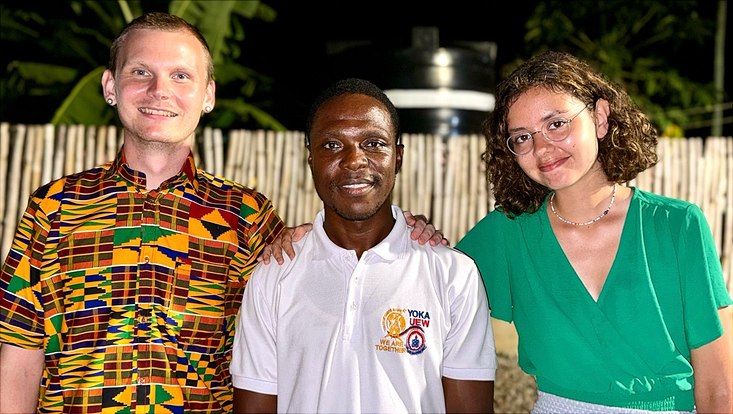Title—theses—doctoratesMadagascar’s Biodiversity in Crisis
24 April 2023, by Marie Schlicht
The funding measure Hamburglobal PhD, which taps resources from the Excellence Strategy, enables doctoral researchers at Universität Hamburg to study abroad for several months. The geographer Leo van Versendaal is studying the impact of the corona pandemic on Madascar’s unique biodiversity.
Mr. van Versendaal, what makes Madagascar especially interesting as a research area?
Madagascar is one of the world’s oldest islands. It is home to flora and fauna that you find nowhere else—for example, primate groups such as lemurs, or the traveler’s tree, which looks like a palm tree.
Clearing and poaching have long threatened the island’s unique biodiversity. Currently, for example, far more than 100 mammal species are facing extinction. When the corona pandemic began, I was afraid that the pressure on biodiversity would increase even more—due, for example, to increasing poverty among the population and the exploitation of natural resources. I wanted to find out if that was true; also so that I could analyze how we can better shape conservation for the future.

What methods do you use?
I traveled through Madagascar with a translator for 3 months, interviewed nature protection organizations, and initiated focus group discussions with the local population. I am now comparing the organizations with regard to their nature protection plans to find out which are the most efficient and may prove effective in future crises. In doing so, it’s important to incorporate the ideas and needs of the local resident population.
What are your preliminary findings? Has the crisis harmed nature protection efforts on Madagascar?
The population of Madagascar is, on the whole, very poor and depends on natural resources such as wood. Their poverty became more pressing thanks to the reduction in tourism during the pandemic. This state of emergency also led to greater pressure on the natural world. Additionally, nature protection organizations received fewer or late donations and, due to the lockdown, could not enter their project areas. As a result, there were fewer ranger patrols, the country’s national parks were unprotected, and there were more illegal and unsustainable activities such as deforesting and hunting. This increased burden on natural resources created a significant danger to Madagascar’s biodiversity.
What nature protection plans could best help in the future?
My impression is that those project are successful in which local communities take care of natural protection themselves—so-called “community-based conservation projects.” In these cases, people have a comprehensive understanding of what nature protection actually is. When it comes to crisis management, however, it’s tricky: negotiations often start only when it is already too late. But I hope that the conversations I initiated might already lead to the first step towards change.
Funding program Hamburglobal PhD
With resources from the Excellence Strategy of the Federal and State Governments, Universität Hamburg’s funding program Hamburglobal PhD supports stays abroad for doctoral researchers at the University if their dissertations have links to the University’s core research areas, emerging fields, or profile initiatives. Funding is available for stays at any of Universität Hamburg’s strategic partner universities or other excellent research institutions abroad.






 As a
As a